
This is the English translation of a Turkish language article that was originally published by AVİM on 13 November 2024.
The 16th BRICS Summit was held in Kazan 22-24 October 2024 under the theme “Strengthening Multilateralism for Just Global Development and Security”. Economist James O’Neill used the term “BRIC” in his 2001 report to explain that Brazil, Russia, India and China will influence the global economy with their the developing economies in the near future. But presently, BRICS concept is not limited to describing only the founding countries that have the opportunity to shape the global economy. The platform, which took the name BRICS with the participation of South Africa in 2010, experienced its biggest expansion with the Johannesburg Summit in 2023. BRICS has invited Iran, Saudi Arabia, United Arab Emirates, Etihophia, and Egypt to full membership in 2023. Thus, BRICS began to be known to as BRICS+. Moreover BRICS, has become cooperation platform that represent a significant proportion of the global scale in terms of population, global GDP, global energy sources like oil and natural gas. This stuation has been influential in the countries such as Türkiye, Sri Lanka, Vietnam, Malaysia applying for membership, in countries such as Serbia wanting to join the intergovernmental alliance instead of membership and the interest shown by more than thirty countries in the membership process.[1] However, the primary importance of BRICS, rather than the percentages it represents within the global scale, is due to creating new areas of cooperation, efforts to develop alternative tools for the global economic system, and rhetoric of multilateralism. [2] On the other hand, it is being argued that the Global South’s countries growing interest in BRICS membership is due to the reshaping of their foreign policies in the aftermath of the Gaza War.[3] An opinion focused Southeast Asian states is that ASEAN’s failure to contribute to the regional countries has increased interest towards BRICS.[4]
BRICS is referred to as a platform. This is because of shortcomings such as BRICS lacking the institutional structures characteristically found in international organizations, its membership processes being unclear, and does not having regulations. Although various steps have been taken to solve some issues, the presence of countries such as Iran and Saudi Arabia, China and India, which have deep-rooted problems in their bilateral relations, within BRICS shows that the platform does not have a holistic structure and that there are some limitations. In another perspective, Saudi Arabia, which was invited for membership in 2023, attended the 16th BRICS Summit held in Kazan at the level of a Foreign Minister, as it has not yet completed the necessary internal procedures.[5] Crown Prince Mohammed bin Salman, met with US Secretary of State Blinken at the time the Summit was held.[6] This situation exemplifies the ability of regional powers to use BRICS to diversify their foregin policy tools. UN Secretary General Antonio Guterres’ participation in the BRICS Summit, helped to increase its significance within international organizations.
BRICS avoids positioning itself as an alternative institution to the West. It is argued that participating countries such as India and Brasil, played a role in this situation.[7] Similarly, BRICS as an alternative institutional structure to the West may impose a constraint on countries with good relations with the West, such as Southeast Asia countries, which have already expressed interest in membership. In this regard, the main allure of BRICS stems from its effort to develop alternative instruments to institutions such as such as the IMF and the World Bank, as well as the dominance of the dollar and SWIFT within the Western-dominated neoliberal economic system. Initiatives such as the the establishment of the Reserve Fund Arrangement in 2014 among the BRICS Central Banks, the establishment of the New Development Bank in 2015, the establishment of the BRICS Solvency Facility in 2020, and the use of national currencies in BRICS' relations with third-party countries at the 2023 Summit to expand the use of national currencies are examples of this effort. However it is stated that, since the Central Banks of BRICS countries do not yet prefer national currencies as reserve currencies. And even the Chinese Yuan's share in World Central Banks is only 2.2% according to 2022 data, the dominance of the dollar is far from being broken yet,[8] and this process should be supported by factors such as transparency and risk management in capital markets.[9] Consequently, it is possible to state that BRICS has demands for change in the instruments and institutions in the global financial system and various initiatives in line with this demand. However, it is possible to state that there is still a long process to achieve success.
China and the 16th BRICS Summit
China, has utilized platforms of summit diplomacy such as BRICS, China-Africa Cooperation (FOCAC,) the Belt and Road Initiative Summit, as a tool to strengthten relations with the Global South. It is possible to trace the origin of China’s goal to strengthen its relations with the Global South back to the Bandung Conference in the Mao era. In the 1960s, when China, which is was already in bad relations with the Western Bloc 1960s due to Sino-Soviet Split, started to have problems with the Eastern Bloc countries as well.[10] China tried to overcome its diplomatic isolation by strenghtening its relations with countries in Asia, Africa and Latin America with the effect of the de-colonization process.[11] In this regard, China presented “Third World Theory” to the UN General Assembly in 1974.[12] According the China’s Third World Theory, the First World comprises the United States and the Soviet Union, the Second World as comprises other industrialized powers, like countries of Western Europe and Japan, and the Third World comprises developing countries in Asia, Africa and Latin America.[13] Thus, China identified itself with the Thirld World. This foreign policy approach continues in the relationship that China is establishing with the Global South. As a result of following more proactive foreign policy approaches during the Xi era, this perception has turned into assuming the leadership of the Global South. Xi’s statements that China “must show responsibility for the common future as the leader of the Global South” during his speech at the 16th BRICS Summit are an indication of this situation. Similarly, most of his speech is made up of statements regarding the Global South. In addition, Xi stated that for new members who will join BRICS, membership as “full members”, “partner countries” or in the “BRICS Plus” format will be supported. Thus, it is possible to state that China proposes greater representation of the Global South with the participation of new members.[14] The “Common Understandings Between China and Brazil on Political Settlement of the Ukraine Crisis” text issued by China and Brasil on May 23 regarding the settlement of the Russia-Ukraine War was brought up again during the BRICS Summit.[15] This situation defines China’s effort to be a “international responsible actor” in the international system and desire to play an active role in conflict resolution through the Global South. Additionally, China is trying to promote the use national currency in trade with the participant countries of the Belt and Road Intiative. In this contex, the de-dollarization process of BRICS contributes to China’s foreign policy. Thus, it is possible to suggest that the BRICS platform, serves as a springboard for achieving China's foreign policy goals.
The Kazan Declaration
In the Kazan Declaration adopted after the 16th BRICS Summit, three main topics draw attention. The first is related to the membership process for new members to the platform, which became the global center of political gravity after the 2023 expansion. In this contex, the membership criteria have been elaborated, the partner country status has been accepted, but the recruitment of a new member has not been finalized. The second main topic is to bring current international issues, such as the Sudan issue, Gaza War, Syria issue, Russia-Ukraine War, Iran-Israel conflict, Bab al-Mandab Strait and Red Sea issues, to the agenda. A supportive approach was adopted towards Iran, Syria, and Palestine. On the other hand, a limited restrained approach was adopted towards the Russia-Ukraine War. The third main topic is, the new tools proposed in line with the goal of developing new means for the global economic system, which is the main practice of BRICS. In this regard, three systems have been proposed. The “BRICS Bridge” has been proposed with the aim of serving as an alternative to SWIFT. “BRICS Pay” has been proposed as a means of payment, and “BRICS Clear” has been proposed as a depository system. These three systems, are the continuation of efforts to create an alternative system since the 2010s. Additionally, there was also an emphasis on multilateralism and a more just and multipolar order. This situation is in line with China’s foreign policy discourse and the demands for change in the international system. Another prominent point is that reference made to structures such as the Kyoto Protocol, the World Trade Organization and the UN for the solution of international problems. It is possible to see this as an example of the participating countries recognizing the importance of existing international institutions and positioning BRICS as a strong international mechanism within the existing system.[16]
Regarding Türkiye’s participation in BRICS, Türkiye’s President Erdoğan stated that Türkiye is a member of many international organizations such as MIKTA, G20, the European Council in his speech at the Summit.[17] President Erdogan also emphasized the desire to increase cooperation with BRICS.[18] The conveyed statements suggest that BRICS is seen as an opportunity for new cooperation and “strategic autonomy” in terms of Turkish foreign policy. Membership of BRICS provides Türkiye with an opportunity to establish closer political, economic, and trade relations and enhance dialogue with member countries. For BRICS, rather than the impression that BRICS+ consists of countries that do not belong to the are not allied with the West, Türkiye’s membership can help to display the impression of a platform that mainly consists of developing countries.
In conclusion, by leading the Global South, China advocates multilateralism, multicentrism, de-dollarization, and the Global South having a greater say in the international system. In this contex, the BRICS' efforts to develop alternative economic means to the Western-dominated neoliberal economic system contribute to achieving China's foreign policy goals. The fact that BRICS has become a center of political gravity for many countries, especially the countries of the Global South, is stems from the its goal of developing alternative tools in the field of global economy and finance and new areas of cooperation. The lack of serious institutional mechanisms causes BRICS to be limited as a dialogue platform, while at the same time facilitating the participation of countries of the Global South and states of regional power in the framework of multicentrism. However, it should be stated that BRICS still has a long process ahead of it in order to achieve its economic and financial goals, such as breaking the dominance of the dollar.
[1] Kekic, T. (2024, 23 October). Serbia Eyes BRICS Partnership as Top Officials Attend Summit in Kazan. BNE Intelli News. 8 November 2024 https://www.intellinews.com/serbia-eyes-brics-partnership-as-top-officials-attend-summit-in-kazan-349731/
[2] Yesevi, Ç. G. (2024, 4 November). Türkiye’nin BRICS Üyeliği ve BRICS’in Adil Düzeni. Panorama. 7 November 2024 https://www.uikpanorama.com/blog/2024/11/04/turkiye-brics-cgy/?print=print
[3] Ergenç, C. (2024, 29 October). BRICS’i Birleştiren Nedir? Evrensel. Accessed 7 November 2024 https://www.evrensel.net/yazi/95805/bricsi-birlestiren-nedir
[4] Seah, S. (2024, June). Southeast Asia and BRICS: Fear of Missing Out. Fulcrum. Accessed 8 November 2024 https://fulcrum.sg/southeast-asia-and-brics-fear-of-missing-out/
[5] Saudi Crown Prince Not Attending Russia’s BRICS Summit. (2024, 11 October).Gulf Business. Accessed 12 November 2024 https://gulfbusiness.com/saudi-crown-prince-mbs-brics-russia/
[6]MBS, US Secretary of State Blinken Discuss Gaza, Lebanon Situation. (2024, 23 October).Al Arabiya English. Accessed 12 November 2024 https://english.alarabiya.net/News/saudi-arabia/2024/10/23/us-secretary-of-state-blinken-arrives-in-riyadh
[7] Temko, N. (2024, 31 October). US Seeks to Counter China in the Global South. Is it too late? CS Monitor. Accessed 7 November 2024 https://www.csmonitor.com/World/2024/1031/us-china-russia-brics-global-south
[8] Timofeev, I. (2024, 18 March). Financial Settlements Within the BRICS Framework: Moving Forward, Despite Problems. Valdai Club. Accessed 7 November 2024, https://valdaiclub.com/a/highlights/financial-settlements-within-the-brics-framework/
[9] Timofeev, I. (2024, 18 March). Financial Settlements Within the BRICS Framework: Moving Forward, Despite Problems. Valdai Club. Accessed 7 November 2024, https://valdaiclub.com/a/highlights/financial-settlements-within-the-brics-framework/
[10] Üngör, Ç. (2009). Çin ve Üçüncü Dünya. İ.Ü. Siyasal Bilgiler Fakültesi Dergisi , 41, 29-30.
[11] Üngör, Ç. (2009). Çin ve Üçüncü Dünya. İ.Ü. Siyasal Bilgiler Fakültesi Dergisi , 41, 29-30
[12] Yu, G. T. (1977). China and the Third World. Asian Survey, 17(11), 1036-1048.
[13] Yu, G. T. (1977). China and the Third World. Asian Survey, 17(11), 1036-1048.
[14] Highlights of Xi’s remarks during 16th BRICS Summit. (2024, 25 Ekim).Xinhua. Accessed 7 November 2024 https://english.news.cn/20241025/225fa6aa4d1947c3b1d15855963d1ac3/c.html
[15] Brazil and China Present Joint Proposal for Peace Negotiations with the Participation of Russia and Ukraine. (2024, 23 Mayıs). Planalto. Accessed 8 November 2024 https://www.gov.br/planalto/en/latest-news/2024/05/brazil-and-china-present-joint-proposal-for-peace-negotiations-with-the-participation-of-russia-and-ukraine
[16] XVI BRICS Summit Kazan Declaration Strengthening Multilateralism For Just Global Development and Security, Accessed 6 November 2024 http://static.kremlin.ru/media/events/files/en/RosOySvLzGaJtmx2wYFv0lN4NSPZploG.pdf
[17] Cumhurbaşkanı Erdoğan, “Genişletilmiş BRICS+ Oturumu"nda konuştu. (2024, 24 October).Türkiye Cumhuriyeti İletişim Başkanlığı. Accessed 8 November 2024 https://www.iletisim.gov.tr/turkce/haberler/detay/cumhurbaskani-erdogan-genisletilmis-brics-oturumunda-konustu
[18] Cumhurbaşkanı Erdoğan, “Genişletilmiş BRICS+ Oturumu"nda konuştu. (2024, 24 October).Türkiye Cumhuriyeti İletişim Başkanlığı. Accessed 8 November 2024 https://www.iletisim.gov.tr/turkce/haberler/detay/cumhurbaskani-erdogan-genisletilmis-brics-oturumunda-konustu
© 2009-2025 Center for Eurasian Studies (AVİM) All Rights Reserved
No comments yet.
-
 THE 16TH BRICS SUMMIT REGARDING CHINA AND THE GLOBAL SOUTH
THE 16TH BRICS SUMMIT REGARDING CHINA AND THE GLOBAL SOUTH
Seyda Nur OSMANLI 26.12.2024 -
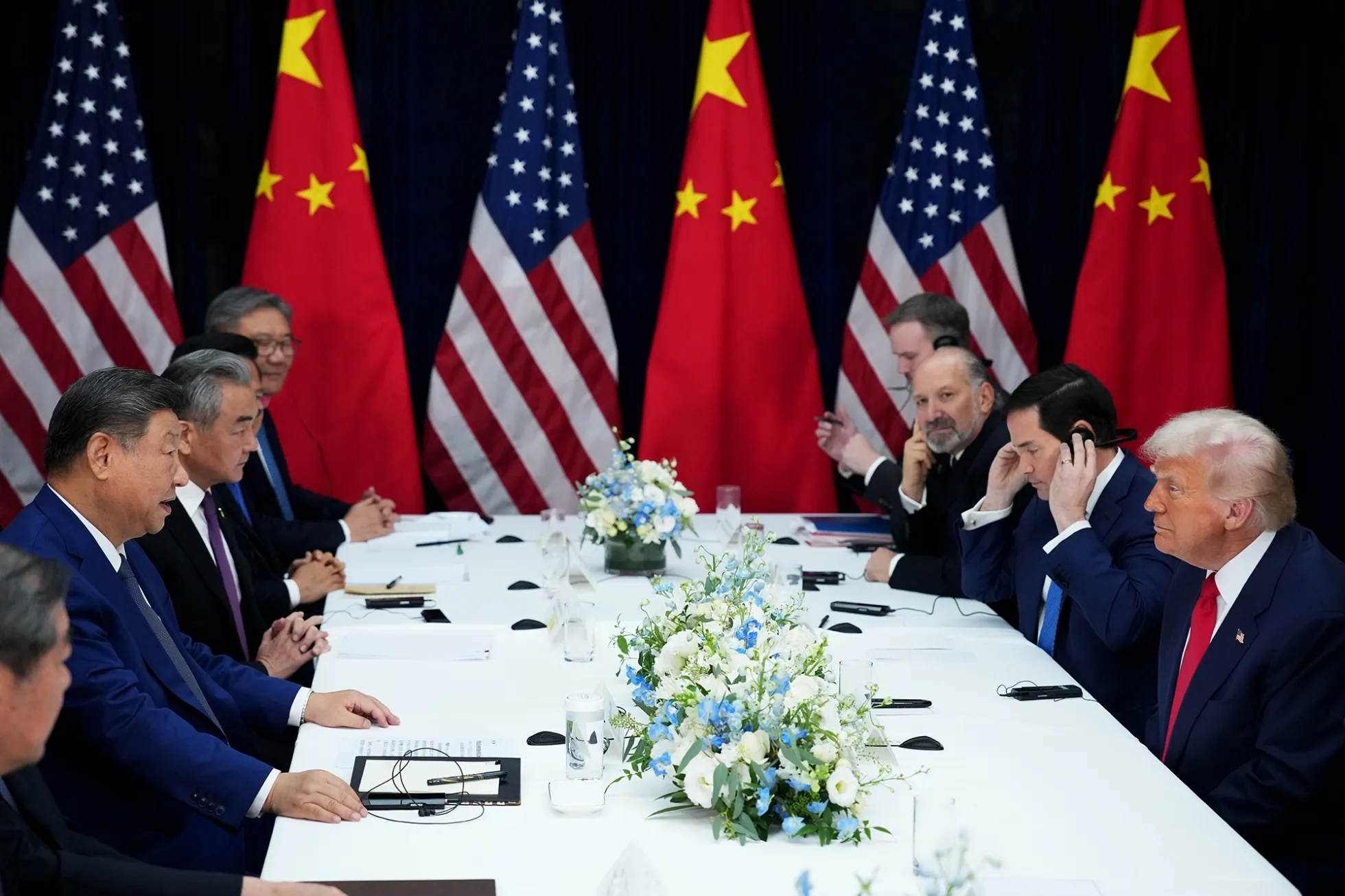 HIGHLIGHTS FROM THE US PRESIDENT TRUMP’S ASIA TRIP
HIGHLIGHTS FROM THE US PRESIDENT TRUMP’S ASIA TRIP
Seyda Nur OSMANLI 29.01.2026 -
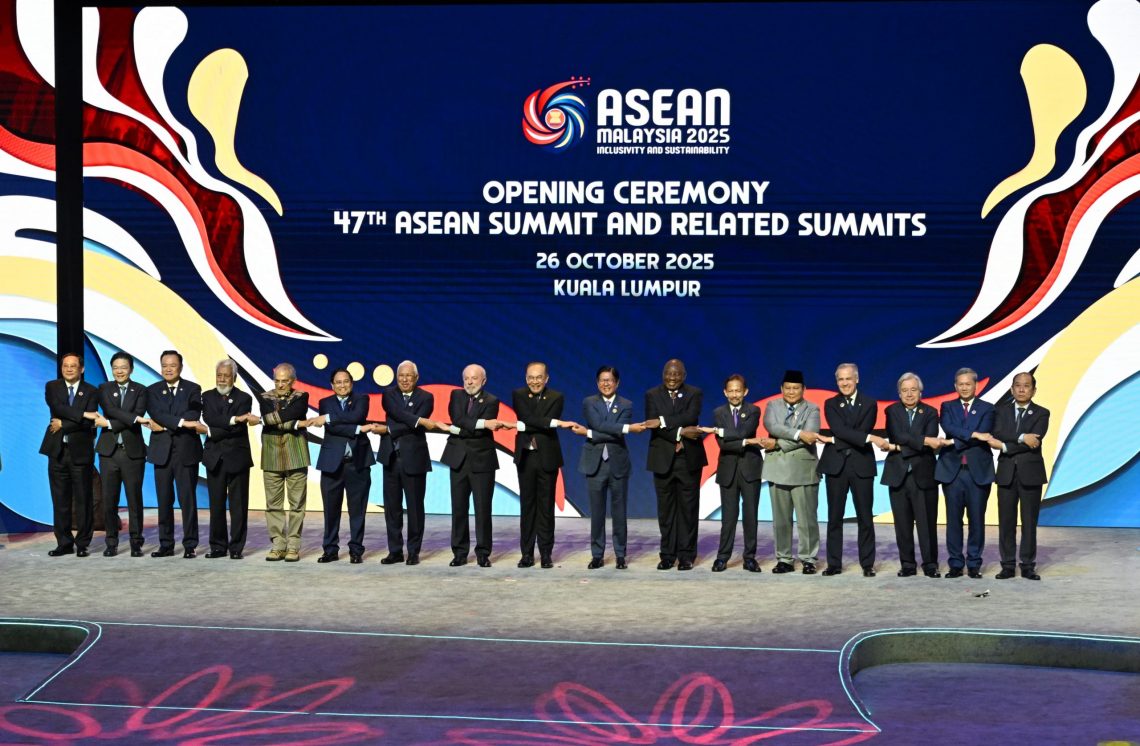 HIGHLIGHTS FROM THE 47TH ASEAN SUMMIT
HIGHLIGHTS FROM THE 47TH ASEAN SUMMIT
Seyda Nur OSMANLI 20.01.2026 -
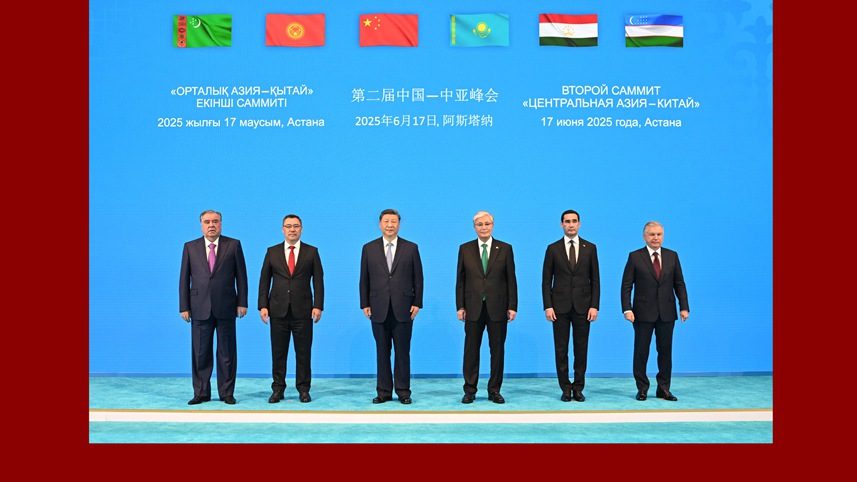 CHINA’S INCREASING INVOLVEMENT IN CENTRAL ASIA: THE SECOND CHINA-CENTRAL ASIA SUMMIT
CHINA’S INCREASING INVOLVEMENT IN CENTRAL ASIA: THE SECOND CHINA-CENTRAL ASIA SUMMIT
Seyda Nur OSMANLI 18.08.2025 -
 TURKIYE-CHINA RELATIONS: OPPORTUNITIES AND CHALLENGES
TURKIYE-CHINA RELATIONS: OPPORTUNITIES AND CHALLENGES
Seyda Nur OSMANLI 22.11.2024
-
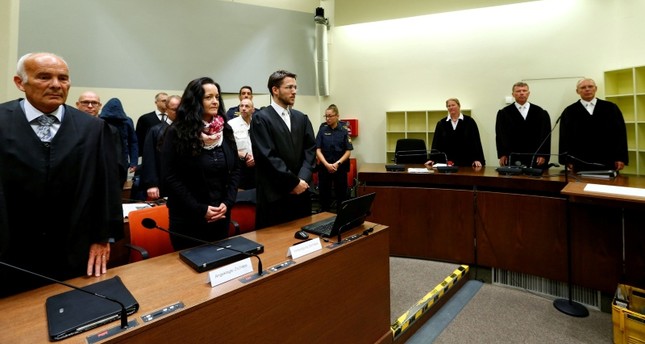 FAR-RIGHT VIOLENCE AND TERRORISM RISES IN GERMANY: NATIONAL SOCIALIST UNDERGROUND (NSU) TERRORIST GROUP AND THE MURDERS OF EIGHT TURKISH-GERMAN CITIZENS
FAR-RIGHT VIOLENCE AND TERRORISM RISES IN GERMANY: NATIONAL SOCIALIST UNDERGROUND (NSU) TERRORIST GROUP AND THE MURDERS OF EIGHT TURKISH-GERMAN CITIZENS
Teoman Ertuğrul TULUN 26.08.2019 -
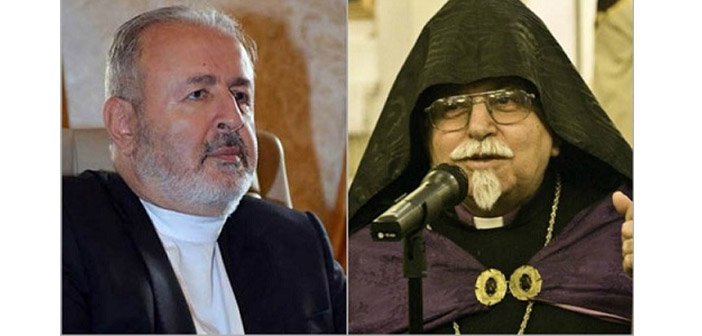 THE ELECTION PROCESS OF THE ARMENIAN PATRIARCH OF ISTANBUL HAS GAINED MOMENTUM
THE ELECTION PROCESS OF THE ARMENIAN PATRIARCH OF ISTANBUL HAS GAINED MOMENTUM
Mehmet Oğuzhan TULUN 29.05.2017 -
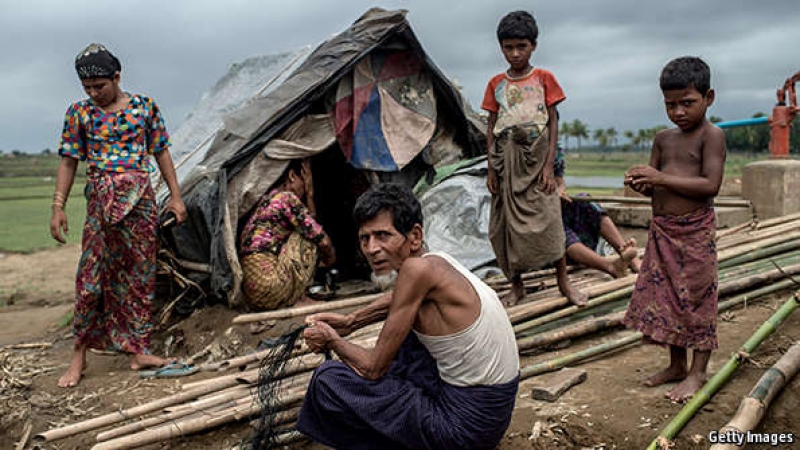 ARAKAN AND THE PLIGHT OF THE ROHINGYA: CONFLICT UNDER AN UMBRELLA OF DEFINITIONS
ARAKAN AND THE PLIGHT OF THE ROHINGYA: CONFLICT UNDER AN UMBRELLA OF DEFINITIONS
Teoman Ertuğrul TULUN 09.10.2017 -
 THE CHARMING MODERN SILK ROAD DAZZLES THE EU
THE CHARMING MODERN SILK ROAD DAZZLES THE EU
Hazel ÇAĞAN ELBİR 29.04.2019 -
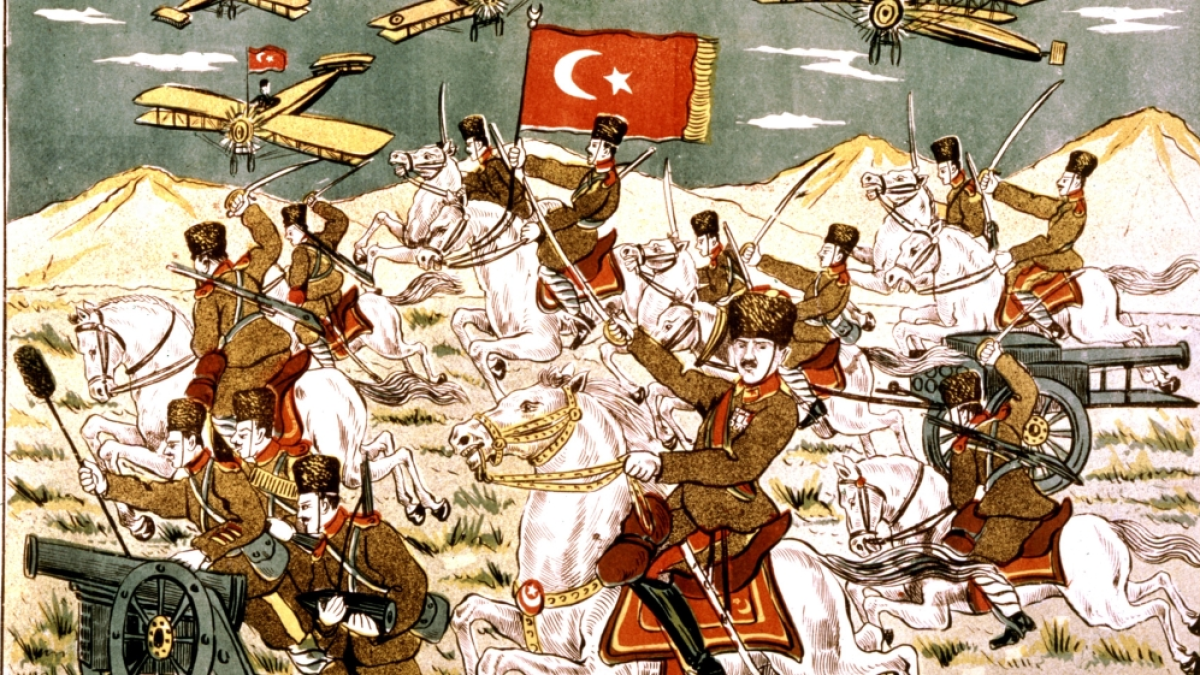 APRIL 24 AND THE IGNORED FIRST WORLD WAR
APRIL 24 AND THE IGNORED FIRST WORLD WAR
Hazel ÇAĞAN ELBİR 30.04.2024
-
25.01.2016
THE ARMENIAN QUESTION - BASIC KNOWLEDGE AND DOCUMENTATION -
12.06.2024
THE TRUTH WILL OUT -
27.03.2023
RADİKAL ERMENİ UNSURLARCA GERÇEKLEŞTİRİLEN MEZALİMLER VE VANDALİZM -
17.03.2023
PATRIOTISM PERVERTED -
23.02.2023
MEN ARE LIKE THAT -
03.02.2023
BAKÜ-TİFLİS-CEYHAN BORU HATTININ YAŞANAN TARİHİ -
16.12.2022
INTERNATIONAL SCHOLARS ON THE EVENTS OF 1915 -
07.12.2022
FAKE PHOTOS AND THE ARMENIAN PROPAGANDA -
07.12.2022
ERMENİ PROPAGANDASI VE SAHTE RESİMLER -
01.01.2022
A Letter From Japan - Strategically Mum: The Silence of the Armenians -
01.01.2022
Japonya'dan Bir Mektup - Stratejik Suskunluk: Ermenilerin Sessizliği -
03.06.2020
Anastas Mikoyan: Confessions of an Armenian Bolshevik -
08.04.2020
Sovyet Sonrası Ukrayna’da Devlet, Toplum ve Siyaset - Değişen Dinamikler, Dönüşen Kimlikler -
12.06.2018
Ermeni Sorunuyla İlgili İngiliz Belgeleri (1912-1923) - British Documents on Armenian Question (1912-1923) -
02.12.2016
Turkish-Russian Academics: A Historical Study on the Caucasus -
01.07.2016
Gürcistan'daki Müslüman Topluluklar: Azınlık Hakları, Kimlik, Siyaset -
10.03.2016
Armenian Diaspora: Diaspora, State and the Imagination of the Republic of Armenia -
24.01.2016
ERMENİ SORUNU - TEMEL BİLGİ VE BELGELER (2. BASKI)
-
AVİM Conference Hall 24.01.2023
CONFERENCE TITLED “HUNGARY’S PERSPECTIVES ON THE TURKIC WORLD"









